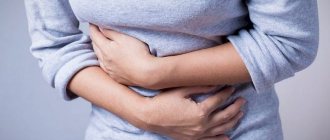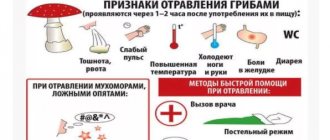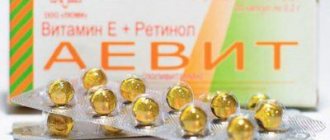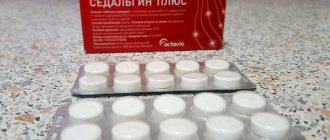The taste of ripe fruit is tempting. And why wait for the ripening season of your favorite fruit if it is already on the shelves? Entrepreneurs take advantage of the desire to be deceived and quickly try the delicious fruit. Fruit poisoning most often occurs due to nitrate fruits.
Previously, the fight against nitrates was simpler - I washed it under warm water, peeled it off - and they were gone.
This was the case until entrepreneurs used only one growth hormone, which accumulated in the roots, the upper layer of the peel.
But the desire to make a big profit forced him to resort to other tricks. Now the fruits are pumped with growth hormones, which safely settle in the pulp. It gives a pleasant taste, aroma, and the inattentive buyer will be poisoned without noticing anything.
What are the benefits of orange?
Scientists around the world have long found out that the orange fruit has amazing properties:
- rejuvenates the body;
- is a natural antioxidant (removes toxins);
- helps slow down aging;
- prevents the development of many diseases.
Orange is considered beneficial for the hematopoietic system. Regular consumption of citrus fruits thins the blood and accelerates blood circulation, so that the body is better saturated with oxygen. The beneficial substances contained in orange fruits strengthen blood vessels, prevent the occurrence of thrombophlebitis and atherosclerosis, and reduce cholesterol.
How pineapple poisoning manifests itself: causes and first aid.
Read whether you can be poisoned by persimmon and how to help a person with intoxication.
Oranges bring considerable benefits to the gastrointestinal tract. Eating just one fruit a day can normalize digestion, gently cleanse the intestines, and prevent putrefactive processes in it. In addition, oranges increase appetite, help fight vitamin deficiency, fatigue, and strengthen the immune system.
Orange juice contains special substances - phytoncides, which have anti-inflammatory and antiviral properties. During the period of colds, it is useful to drink a freshly squeezed drink containing vitamin C. Ascorbic acid increases the defenses, so drinking citrus juice will quickly put a sick person on his feet.
Flavors identical to natural
They are most often found in modern foods. Much cheaper, since for their production they do not take real raw materials, but the basic components from which the raw materials are made. Such flavors are obtained in laboratory conditions by combining basic ingredients using simple chemical processes.
The result is a synthesized additive whose chemical composition is similar to a natural flavor. If nothing extra is added to the flavor, it remains completely safe or at least neutral for the body. In reality, a flavor identical to the natural one harms the body in case of a serious overdose.
Who shouldn't eat oranges?
Despite the fact that the juicy fruits are considered healthy, some people are strictly prohibited from consuming them. If a person has problems with the gastrointestinal tract (ulcers or gastritis with increased formation of acid in the stomach), eating oranges is contraindicated. In addition, these fruits contain a huge amount of sugar, which can trigger the development of diabetes and obesity.
Children should not eat citrus fruits in large quantities. Oranges are considered natural allergens, and their abuse often results in diathesis, rash or other allergic reactions. Pregnant and lactating women should also avoid eating the juicy treat. During pregnancy, an allergy to oranges may occur, and during lactation, the fruit leads to increased gas formation and fermentation in the baby's stomach (to colic).
Signs of fruit poisoning
The following ailments are considered to be symptoms of orange poisoning:
- pain in the stomach and lower abdomen;
- severe diarrhea;
- nausea, vomiting;
- chills;
- increased body temperature;
- strong thirst;
- dizziness, loss of consciousness;
- weakness;
- trembling of limbs.
Attention! Orange poisoning can be very dangerous, especially for children. Severe dehydration can lead to irreversible consequences for children's health. Therefore, if a child exhibits at least some of the symptoms listed above, an ambulance should be urgently called.
Features of an allergic reaction
An allergy to this fruit is manifested by the following symptoms:
- A bright and profuse rash on different parts of the body.
- Severe itching in the area where there is redness.
- Children may experience swelling of the nasal mucosa, difficulty breathing normally, and severe allergic rhinitis.
- Production of large quantities of tears.
- Swelling of the ear (it is accompanied by a noticeable decrease in hearing).
- When an allergy spreads to the bronchi, the patient may experience difficulty breathing, shortness of breath and a feeling of lack of air.
If the patient is prescribed an antiallergic drug, he can take it as soon as the first symptoms of trouble appear. However, if this happens for the first time, you should immediately consult a doctor. It is necessary to urgently call an ambulance if there is a noticeable increase in the reaction: this can lead to the most dangerous complication - anaphylactic shock.
Help with citrus intoxication
If the poisoning is mild, you can help the victim yourself. First of all, a poisoned person needs to be provided with complete rest and good access to fresh air.
Then it is necessary to perform a gastric lavage to remove dangerous toxins from it. To do this, take a container with warm boiled water and add a little table salt, soda or potassium permanganate (when preparing a solution of potassium permanganate, the liquid should turn out pinkish, otherwise it can cause a burn to the mucous membranes).
The victim is given to drink the prepared solution in small sips. The liquid should be consumed until the urge to vomit appears; if the gag reflex does not occur, you need to press with your fingertips on the root of the tongue and thereby provoke vomiting.
A good help for orange poisoning would be to take adsorbents (Polysorb, activated carbon, Polyphepan). For children, you can crush 2 tablets of charcoal and stir them in a glass of boiled water, then give the child the resulting liquid to drink.
Important! Since during poisoning the body loses a large amount of fluid, the victim must be provided with an increased drinking regime. He is recommended to drink clean water, fruit drinks and compotes, warm (never hot) tea with lemon.
If a person’s vomiting does not go away for a long time, and there are blood impurities in the vomit, the victim will need the help of qualified specialists. The ambulance team will take the victim to the hospital, where he will receive the necessary treatment for orange poisoning:
- gastric lavage using a tube;
- intravenous administration of glucose and saline;
- forced diuresis;
- use of laxatives;
- treatment with antimicrobial agents.
Anti-nausea pills
The state of joy and euphoria felt after drinking alcohol has made alcohol a mandatory attribute of every celebration. However, the consequences of drinking alcoholic beverages are not so rosy. If a person has too much alcohol, the latter leads to severe intoxication of the body, one of the signs of which is exhausting, incessant vomiting.
Why do nausea and vomiting occur after drinking alcohol?
Nausea is the main symptom of alcohol poisoning. Such manifestations are a natural reaction of the body to an excess of alcohol, allowing it to get rid of toxins. That is why vomiting should be stopped only when it does not stop for a long time.
What to do if a loved one is poisoned by alcohol? What medications are there for nausea and vomiting and do they help with alcohol poisoning? Let's try to figure out these questions.
Activated carbon
Activated carbon is the simplest and most affordable medicine for nausea and vomiting. Moreover, these tablets can be used both when hangover symptoms and poisoning occur, and to prevent the development of their symptoms.
What is activated carbon
At its core, activated carbon is a sorbent that absorbs and retains on its surface toxins that form in the intestines after drinking alcohol. That is why it is great for helping with various intoxications.
Our regular reader shared an effective method that saved her husband from ALCOHOLISM. It seemed that nothing would help, there were several codings, treatment at a dispensary, nothing helped. An effective method recommended by Elena Malysheva helped. EFFECTIVE METHOD
The product is made from stone and charcoal that have been subjected to special treatment. And its name tells us this very clearly.
How to use
In order to cope with the symptoms of poisoning, before using activated charcoal, you should thoroughly cleanse the intestines, for example, with an enema. 20 minutes after bowel movement, you should take 1 tablet per 10 kg of weight and wash it down with plenty of water. After 2 hours, you should give another enema - this will remove toxins.
If this is not done, then treatment with activated carbon will not bring the desired result and vomiting will continue.
In order to avoid poisoning, activated carbon should be drunk before drinking alcohol - this will slow down the process of ethanol absorption into the blood. In this case, the tablets are taken according to the following scheme:
- 2-4 pieces, depending on the body’s resistance to alcohol, 2 hours before the feast;
- 1 piece immediately before the feast.
What is the price
Activated carbon costs from 4 to 22 rubles for 10 tablets, depending on the manufacturer.
Linex
As you know, alcohol has a negative effect on all organs and systems of the human body. In this case, the intestinal microflora also suffers. That is why, after alcohol poisoning, Linex is often prescribed, which is a drug that normalizes intestinal microflora.
Linex is produced in capsules with a soluble coating containing lebenin, consisting of:
- bifidobacteria;
- lactobacilli;
- lactic acid enterococci.
The bacteria included in the product help restore the intestinal microflora and perform the following functions:
- provide better absorption of vitamins B, E, C, D, as well as calcium and iron;
- do not allow pathogenic microorganisms to multiply;
- reduce the acidity level of the gastrointestinal tract;
- break down proteins and carbohydrates that are not digested in the intestines;
- participate in the metabolism of bile acids.
In what cases is it prescribed
As a rule, the drug Linex is prescribed for the treatment and prevention of dysbacteriosis, accompanied by:
- malfunction of the gastrointestinal tract;
- diarrhea;
- nausea;
- vomiting;
- increased gas formation;
- constipation;
- heartburn;
- pain in the intestines and stomach.
In this case, the drug Linex can be taken together with other drugs, including antibiotics.
Contraindications to the use of the product are allergic reactions to its components.
Are Linex and alcohol compatible?
Linex and alcohol are not compatible. Ethanol destroys the bacteria contained in the capsules, and accordingly, reduces its effectiveness. That is why this remedy cannot be used for alcohol poisoning.
For the same reason, Linex should not be taken with hot food.
What is the price
The cost of Linex ranges from 247 to 410 rubles for 16 capsules, depending on the manufacturer.
Cerucal
A drug called Cerucal is a medicine for nausea and vomiting that normalizes gastrointestinal motility and is used if a person is diagnosed with:
- nausea and vomiting of various origins;
- decreased tone of the intestines and stomach;
- esophagitis;
- narrowing of the pylorus of the stomach.
The product is available both in tablets and in the form of an injection solution.
Cerucal tablets are used to treat adults and children over 14 years of age.
The drug in injection form is used to treat adults and children over 2 years of age.
Who should not prescribe the drug
In accordance with the instructions, Cerucal tablets and injections are not recommended for use if patients belong to the following groups:
- children under 2 years of age;
- persons with hypersensitivity to the components of the product;
- patients with intestinal obstruction, epilepsy, bleeding from the gastrointestinal tract.
In addition, Cerucal tablets and injections should be used with caution in:
- children aged 2 to 14 years;
- persons suffering from bronchial asthma;
- patients with Parkinson's disease and arterial hypertension.
What side effects does the drug have?
The main side effects after using Cerucal are:
- constipation;
- diarrhea;
- drowsiness;
- dry mouth;
- headache;
- depressive states;
- dizziness;
- irritability;
- feeling of fear.
If these symptoms appear, treatment should be interrupted.
How does the drug interact with other drugs?
Cerucal tablets and injections enhance:
- absorption of aspirin and paracetamol and, accordingly, increases their concentration in the body;
- the effect of sleeping pills and painkillers;
- alcohol.
Can the drug be used for alcohol poisoning?
Due to the fact that Cerucal tablets and injections enhance the effect of alcohol on the body, the use of this drug in case of alcohol poisoning is strictly prohibited.
What is the price
Cerucal tablets (10 mg) cost from 115 rubles for 50 tablets, Cerucal ampoules (10 mg) cost from 230 rubles for 10 ampoules.
What to take to cope with alcohol poisoning
Summarizing the above, we can say that the optimal remedy that helps with alcohol poisoning and saves from vomiting and its other manifestations is activated carbon, which is widely used by our compatriots. If there is no desire to use this product, then it is advisable to use any other commercially available adsorbents - this will help avoid nausea and vomiting.
Well, of course, before drinking alcohol, you should think carefully about what consequences this action can provoke. And even more so, do not drink alcohol on an empty stomach - it is better to eat more snacks than to drink a large amount of alcoholic beverages.
Alcohol intoxication occurs differently for each person. For some, intoxication is simply a state of a slight hangover, which you can quickly get rid of using improvised means without leaving home. For others, on the contrary, intensive treatment with medical intervention, sometimes in a hospital, is necessary. The main thing in treating alcohol intoxication is to contact a real drug addiction specialist who will choose the right treatment and help relieve the symptoms of poisoning.
General symptoms
When the blood alcohol content is from 1.5%, which corresponds to the initial degree of intoxication, effective measures should be taken. The initial stage can still be easily removed on your own; symptoms such as headaches and general weakness can be eliminated at home, for this you can use the drug Hepa-Merz. When the alcohol concentration reaches 2–3%, an average degree of intoxication is diagnosed, and when it exceeds 3%, the most dangerous, third stage is diagnosed. At the third stage, the patient is hospitalized and prescribed treatment in a hospital setting, where he receives intravenous drips of special medications to relieve signs of intoxication.
If an alcohol abuser regularly brings himself to the third stage of intoxication, he can fall into a coma, often leading to death. The first stage of intoxication is characterized by the following symptoms:
- Constantly worsening headaches. They begin due to ethanol entering the brain and organs through dilated blood vessels.
- Poor spatial orientation, dizziness, inability to move independently.
- High body temperature, intense fever.
- Excruciating thirst. You need to drink more liquid, preferably broths, water, sweet tea.
- The body tries to remove toxins on its own through vomiting and frequent urination. In this case, a lot of fluid is lost, which is why you need to drink water as often as possible.
The second stage of intoxication is characterized by the following manifestations:
- The ability to speak clearly is lost.
- Almost complete loss of control over movements - a person cannot not only move independently, but also feels severe dizziness when lying down.
- The skin becomes pale, sticky sweat appears on it, and sometimes the skin turns red.
- Constriction of the pupils.
At the third, most dangerous stage of alcohol intoxication, the patient may lose consciousness and fall into a coma. Under no circumstances should you leave a drunk person alone at this moment, as anything can happen to him.
How to avoid intoxication?
How to properly remove a patient from a state of alcohol intoxication? Why is drug treatment needed? Careful attention should be paid to avoid falling into such a state. The best remedy is to completely abstain from drinking strong drinks. If you cannot completely get rid of such a destructive passion, then you can take care in advance not to bring yourself to a difficult stage.
To make you feel better the next morning, you need to take some measures:
- Before the feast, take activated charcoal.
- Instead of coal, you can drink a mug of milk; this measure can also protect the body from alcohol poisoning.
- Immediately before drinking alcohol, eat thick oatmeal or semolina porridge.
- Before drinking alcohol, as well as during drinking it, it is recommended to take vitamins; with their help, you can significantly mitigate a hangover.
It is recommended to refrain from drinking brine, because the effect of taking it is short-term and insignificant, it contains virtually no vitamins that can help, and the result may be much sadder than it seems. You can take aspirin, which is an excellent analgesic. With its help, headaches, body aches and muscle weakness are eliminated. You should also not refuse the urge to empty your stomach by vomiting, since vomiting removes the remains of disintegrating alcohol from the body.
In case of alcohol poisoning, sleep is a faithful assistant in treatment, but at the second stage of intoxication, and even more so at the third, someone must be near the patient. This is due to the fact that in a dream the patient can easily choke on his own vomit.
If your health worsens, you should immediately seek medical help. If a person is not aware of himself, it is necessary to call an ambulance or take him to the emergency room. Only a doctor should prescribe medications, and since most drugs are infused intravenously, the treatment process should be monitored by a health care professional.
Treatment of alcohol intoxication
There are several ways to treat intoxication. The most effective is treatment in a hospital and administration of drugs through droppers.
The doctor should prescribe medications, because if the patient is given the wrong medications, harm may be caused to the body, which will further aggravate the patient’s condition.
In case of acute alcohol poisoning, medications in solid form no longer help; more intensive types of treatment are needed. It is necessary to remove the effect of decaying ethanol, which enters all the patient’s organs through the blood.
At first, the patient needs to be given 10 tablets of activated carbon, then rinse the stomach. This procedure should be carried out not with hot water, gradually introduced into the stomach cavity. Then the patient is artificially induced to vomit by stimulating the root of the tongue.
Intensive treatment of intoxication is called the “method of rapid sobering up.” With this treatment, the patient is given vitamin B6 through an injection, which begins to act very quickly. After 15–20 minutes, the patient begins to show meaningfulness, consciousness becomes clearer. After another 10–15 minutes, the patient’s thought processes normalize, behavior becomes adequate, and emotional and muscle tension goes away.
After 1–1.5 hours the patient fully regains consciousness. However, the use of vitamin B6 is not enough, because this sobering up is temporary. It is also necessary to carry out detoxification, to eliminate the harmful effects of toxins on all the patient’s organs.
To reduce the alcohol content in the blood, it is necessary to put on a drip consisting of the following drugs:
- 5% glucose solution in a volume of 0.2 l.
- 5% ascorbic acid volume 0.01 l.
- 1% nicotinic acid volume 0.001 l.
Solutions of panangin and sodium chloride are also used as auxiliary solutions.
Solutions used for detoxification
To eliminate alcohol intoxication, a wide range of drugs is used. But only a doctor can prescribe this or that medication. Intravenous infusions are performed using the following groups of drugs:
- Solutions of electrolytes and sugars.
- Plasma replacement agents.
- Solutions that eliminate poisoning.
- Psychostimulants and analeptics. Vitamins and their complexes - thiamine, calcium pangamate, pyridoxine.
- Hepatoprotectors and nootropics - metadoxil, piracetam, mildronate, Hepa-Merz and others.
- Psychotropic drugs - sodium thiopental, tapridal.
Additional drugs: Smecta, Hepa-Merz
For the first and second degrees of alcohol intoxication, drugs sold in pharmacies - Hepa-Merz or Smecta - can also be effective. They are taken only as auxiliary to the main list of medicines.
Hepa-Merz drug
It can help get rid of hangover symptoms, eliminate unpleasant smell and dry mouth, relieve headaches and nausea.
The main active ingredients of Hepa-Merz are ornithine aspartate and citric acid, which:
- They absorb ammonia, which occurs during the breakdown of ethanol and is a strong poison.
- They reduce intoxication, which is important primarily in case of liver and kidney failure.
- Promote the synthesis of urea and activate the small Krebs cycle.
Hepa-Merz belongs to the group of hepaprotectors and agents intended for detoxification. In case of acute alcohol poisoning, Hepa-Merz is an indispensable remedy, but the drug should be taken only in combination with other medications.
"Smecta" for alcohol intoxication
A remedy such as Smecta is often taken for poisoning. The chemical composition of the drug allows it to be classified as an intestinal adsorbent, and based on its type of action, it can be classified as a means for eliminating chronic and acute diarrhea.
In case of poisoning, including alcohol intoxication, Smecta acts very quickly and effectively. The main active ingredient in the preparation is natural aluminosilicate, that is, a special type of clay crushed into powder. To give Smecta acceptable taste and organoleptic qualities, as well as to obtain a stable suspension when adding powder to water, Smecta contains vanillin, glucose and saccharin.
“Smecta” is capable of selectively neutralizing harmful substances and, together with intestinal mucus, creating a kind of barrier. During intoxication, Smecta binds poisons, pathogenic bacteria, toxins and some types of viruses. At the same time, all beneficial microorganisms and bacteria remain in the body. “Smecta” is not absorbed into the intestinal walls, but is released naturally, removing along with it the breakdown products of ethanol and other harmful substances.
Smecta is also capable of increasing the volume of mucus in the intestines. The product not only stabilizes mucus, but also increases its protective characteristics. Thanks to its enveloping qualities, Smecta stops the absorption of toxins formed as a result of the breakdown of alcohol into the bloodstream.
Preventing orange poisoning
To avoid unpleasant consequences when enjoying fruits, you need to adhere to certain rules. It is advisable to buy citrus fruits only in trusted places (large supermarkets, food markets). You need to be careful when purchasing juicy fruits on the street: when buying fruit, ask the seller for a product quality certificate, carefully inspect and select oranges. Fruits with signs of rot or with black spots cannot be purchased, since pathogenic organisms are already multiplying in such oranges.
Read how to help with tangerine poisoning and how to recognize the symptoms of intoxication.
After purchasing oranges, before eating, the fruit should be washed under running warm water and the peel removed. If the orange has a bitter taste or the pulp smells unpleasant, eating such a delicacy is dangerous, as these signs may indicate the presence of pesticides. Children should not be allowed to eat more than one fruit per day, otherwise the child may have an allergic reaction.
You can get poisoned from oranges just like any other food. In order for the delicacy of juicy orange fruit to bring only benefit and joy, you need to carefully consider the choice when purchasing them. In addition, no matter how healthy a fruit may be considered, you should not abuse it; you need to know moderation in everything.
Orange poisoning is not a rare occurrence: it affects a large number of people every year. Fruits are sources of a huge number of vitamins and beneficial microelements. Oranges are no exception; the content of nutrients in them is even higher than in some other fruits.
Oranges are a storehouse of vitamin C and phytoncides, so the fruit is often used as a preventative against colds and viral diseases, to support the body during periods of vitamin deficiency and poor functioning of the immune system. Often, instead of benefiting, orange fruit brings harm to a person, so you need to know why oranges are dangerous. We are talking about intoxication of the body. It is often very severe and the victim may end up in the hospital.
Video: 10 strange facts about fruits
Because You are not logged in. To come in.
Because you are not a trusted user (phone number is not verified). Enter and confirm your phone number. Read more about trusts.
Because The topic is archived.
a friend told me the following today
“I told you .. we were all poisoned by oranges from the tape (((I bought them on Friday .. we ate them on the weekend but the orange was divided into three, so the dose was small.. sachet (approx. - daughter) on Sun at night it became bad, she was vomiting heavily and she lay in bed all day, we thought that she had eaten too much sweets that day, then on Monday evening I ate one whole orange, and at night I started having terrible dryness, vomiting, fever, I was lying at home all Tuesday. and on Tuesday evening, Tanya suspected that it might be oranges and also decided to check - she ate the whole thing yesterday and lay there almost alive all day. like this (((and something else is happening to the legs. You can’t walk anymore, you can’t knock yourself down, but you can lie down. Ass scary"
Fresh fruits are a direct source of vitamins necessary for the human body to function normally. In supermarkets, food markets, and street stalls you can buy ripe and tasty bright orange fruits - oranges. Sometimes there are situations when a juicy citrus delicacy causes great harm to the body instead of benefit. Orange poisoning occurs in different ways: some will feel only a slight discomfort, others may end up in a hospital bed with severe food intoxication (see How many people are in the hospital with poisoning).
Oranges belong to the rue family. They came to Europe from China. Portuguese travelers liked the sweet and sour taste of the fruit from the Middle Kingdom so much that they decided to share this delicacy with Europeans. In Holland, the orange is called the Chinese apple. Citrus grows in India, Indonesia, China, Brazil and other Mediterranean countries.
Read also: Lack of an enzyme that breaks down alcohol
Useful properties of oranges
The fruit has some properties that have a positive effect on the human body:
- Rejuvenation of body cells. Oranges, when consumed correctly, can slow down the aging process of the body and accelerate cell regeneration.
- Disease prevention. The constituents of orange tree fruits fight viruses and bacteria, preventing infectious, viral diseases and influenza.
- Removal of toxins. The fruit is used to cleanse the body of toxins, poisons and other harmful substances.
- Blood thinning. This factor can reduce the risk of blood clots on the walls of blood vessels.
- Acceleration of the process of hematopoiesis. The property of the fruit is useful when a person needs to recover from a serious illness or injury. Oranges also speed up blood circulation.
- Strengthening the walls of blood vessels. This type of citrus fruit is necessary for people suffering from VSD and constant nosebleeds.
- Lowering cholesterol levels. Oranges help get rid of cholesterol plaques in the body and prevent their formation.
- Increased appetite. During the season of vitamin deficiency or when the climate changes, a person loses his appetite; The problem can be solved by eating just one orange a day.
- Normalization of the gastrointestinal tract. Eating fruits promotes proper functioning of digestion and intestines.
The benefits of fruits for the body
Every fruit is beneficial to the human body, be it a familiar apple or an exotic pineapple. Eating fresh fruits daily saturates the body with beneficial vitamins and minerals.
Useful composition of fruits:
- Micro and macroelements;
- Vitamin and mineral complex;
- Fiber (in many types of fruits);
- Bioflavonoids.
Nutritionists recommend eating two or three fresh fruits a day, and then the body will receive the nutrients it needs. In addition to excellent taste, fruits help replenish the body's water balance during various diets.
The healthiest fruits:
- Apples;
- Pears;
- Oranges;
- Bananas;
- Grape.
The most benefits are found in fresh whole fruits or juices from them.
Contraindications to taking citrus fruits
Despite the beneficial properties of oranges and the abundance of vitamins in them, not everyone should eat these fruits. They are contraindicated:
- for problems with the gastrointestinal tract: ulcers, ulcerative colitis, gastritis with high acidity;
- people with a predisposition to obesity and diabetes;
- children under 7 years old – oranges cause a severe allergic reaction in them;
- pregnant women;
- women during lactation.
For these groups of people, the beneficial properties of oranges become harmful. Vitamin C and sugar in large quantities can have a detrimental effect on the body.
The first signs of intoxication from oranges
Many people argue whether it is possible to get poisoned by an orange. The answer is clear - you can. But we are talking about poisoning with oranges to which chemical elements were applied (this also happens with melon poisoning). You can be poisoned by these fruits if they were poorly washed or spoiled. This type of poisoning occurs quite often.
Symptoms of orange poisoning:
- stomach ache;
- heat;
- nausea, constant vomiting;
- prolonged diarrhea;
- lower abdominal pain;
- severe migraine, dizziness;
- dry mouth, thirst;
- general weakness of the body;
- loss of consciousness, fainting;
- tremor.
Treatment of poisoning from oranges
Poisoning can be mild or severe. What to do if you are poisoned by oranges? Everything will depend on the form of intoxication.
When the poisoning is not severe, or the body copes with it on its own, the patient can do without the help of doctors.
The poisoned person must be kept at rest and, if possible, open a window to allow fresh air to flow in. It is also necessary to rinse the stomach to remove the chemicals that have entered it (read how to rinse the stomach here). It's very easy to do this:
- You need to take warm boiled water and add salt, soda or potassium permanganate to it (in the latter case, the resulting liquid should be light pink, otherwise the patient may get a burn to the mucous membranes). Drink as much liquid as possible.
- Then the poisoned person must be induced to vomit. Sometimes this happens on its own immediately after taking an aqueous solution, in other cases you need to press on the root of the tongue with your fingers.
- After cleansing the stomach, you need to take activated carbon or another adsorbent. This helps remove remaining toxins from the body. The dose of the drug for adults is calculated by weight; usually it is enough to take 2-3 tablets. It is better to take the medicine with warm water.
With prolonged vomiting, blood appears in the vomit; if this condition occurs, an urgent visit to the hospital is necessary. To treat this type of poisoning, specialists use intravenous drips with saline solutions and forced diuresis. In more complex cases, antimicrobial and laxatives may be used.
Note: during poisoning, the body loses a lot of fluid, so the patient needs to replenish it. To do this, you need to drink more liquids. It is allowed to drink clean water, warm tea with lemon, fruit drinks and compotes.
Preventative measures for orange poisoning
There are a number of rules to help avoid the serious and unpleasant consequences of an overdose of citrus fruits. So, you need:
- Buy oranges in trusted places. Food markets and large stores (supermarkets) receive a certificate for the products they sell. The risk that fruit will be treated with chemicals is much lower.
- Inspect products when purchasing. When an orange has spots, black specks, mold, rot or soft spots, it is not worth taking.
- Rinse oranges before eating. Sometimes fruits are treated with toxins from above without introducing them inside. In this case, thoroughly washing the fruit and peeling it will help avoid poisoning.
- Rate the taste of orange. Sometimes fruits contain pesticides, which is why oranges are bitter. An unpleasant odor may also be present. This product cannot be eaten.
Note: To prevent an allergic reaction, children can eat no more than 1 orange per day.
What kind of sauerkraut should you not eat?
Cabbage that has not undergone the full fermentation process is not suitable for consumption. 2-3 days after laying the product, the fermentation process still continues. It is at this moment that it is not ready for consumption and can cause symptoms of intoxication. Products that have been stored for a long time, that is, were prepared in the fall and stood until spring, are also not suitable for consumption. In such cabbage, as a result of prolonged fermentation, pathogenic microorganisms develop.
Usually, a product in this state already has an unsightly appearance, which is characterized by the presence of a large amount of mucus, a change in color (becomes gray), and an unpleasant smell. However, skillful sellers have learned to mask all these signs of spoiled goods by rinsing with running water, adding vinegar, various berries and onions. With these additives, cabbage looks and smells quite edible, but in fact it is fraught with serious danger.
- You cannot eat a snack if it has the following features:
- viscous, slimy consistency;
- has an unpleasant musty or rotten odor;
- painted in an unnatural color - gray, pink, reddish;
- There is a white film or mold on the surface of the brine.
Fruit Poisoning: Alarm Symptoms
The body's reaction, as a rule, becomes obvious in the first hours after consuming toxic substances. The nuances are individual. Signs of food poisoning depend on the age of the patient, the type of toxin, and the amount of food eaten.
In most cases, the clinical picture is accompanied by the following manifestations:
- pallor (possibly jaundice) of the skin;
- pain, rumbling in the stomach;
- dizziness (up to loss of consciousness);
- diarrhea (uncontrollable);
- labored breathing;
- scanty urination;
- general weakness;
- increased gas formation, bloating;
- nausea and/or frequent, excessive vomiting;
- rapid, or vice versa slow, pulse.
With severe intoxication, the temperature rises, the pupils dilate (or become pinpointed), and the patient is disoriented in space. Vomiting and diarrhea - with blood. Possible coma.
First aid for fruit poisoning
Before the ambulance arrives, you are allowed to:
- forced gastric lavage (at home, use a solution of manganese, soda or salt; volume: 5-20 l);
- drink plenty of water (it is better to use still, boiled, slightly acidified water).
Self-selection of medications (whether painkillers, antiemetics or antiseptics) is unacceptable.
Soursop is a fruit that, judging by the statistics of requests, often causes poisoning.
In case of severe food poisoning, hospitalization in toxicology or infectious diseases department is required.
For mild intoxication, sorbent drugs are prescribed (white coal, Smecta, Polysorb, Enterosgel); dehydration is carried out.
Prevention of fruit poisoning
The main rule is sanitation. According to doctors, it doesn’t hurt to scald any fruit before eating. In fact, this recommendation is rarely followed (strawberries, when treated in this way, become tasteless and unappetizing). An affordable and effective option is rinsing under running water. Peel citrus fruits, apples, and avocados before eating.
Store fruit in the fresh zone of the refrigerator.
A relevant article for this season.)) Yes, it is always better to prevent a disease, and especially poisoning, than to treat the consequences of wrong actions. Prevention, with all measures included, is very important. Regarding this: is it worth pouring boiling water over fruit? In my opinion, this should be done. My colleague lived in Egypt for many years. She told me that in this country it is customary to pour boiling water over all fruits without exception, after washing them first.
It’s possible to get poisoned by oranges – it’s already been tested on yourself and friends. Oranges with Gana stickers (bought in Donetsk) are better than chemical weapons. Symptoms of poisoning: vomiting, diarrhea, fever, abdominal and head pain. The most incomprehensible thing is dizziness, especially in the evening and at night, severe weakness. My friends experienced all these symptoms. I immediately escaped with severe dizziness (as if I had collapsed in bed at night) and vomited a little in the morning after the dizziness. But the duration of the poisoning is “pleasant”: the dizziness has not gone away for almost a week (for some reason I only have it in the evening and at night). Weakness, pain in stomach and head still. We thought about different problems, while our friends (they experience all the above symptoms) also shared such symptoms. We are treated with Atoxil. Let's hope for the best. If someone has similar problems after eating delicious, sweet oranges, don’t worry too much - you got oranges with chemicals. Everyone - not to get sick, and in order not to get sick, well, take this chemistry to the bathhouse.
It was similar, I bought oranges at Pyaterochka, their own brand in red mesh and in full. Acute allergy, which is NOT true for citrus fruits! Ate half an orange.
How to recognize the signs of poisoning and provide first aid correctly.
Each of us looks forward to summer, including because of the abundance of fresh vegetables, fruits and berries. But it is these products that often cause poisoning in Kirov residents. The most dangerous to health are leafy vegetables and greens, which are usually not heat-treated. The risk group also includes melons, mainly watermelons and melons. How to recognize the signs of poisoning and distinguish it from ordinary overeating? Let's figure it out.
Spinach, leafy green salad and white cabbage can cause poisoning, since these are the foods that most often do not undergo heat treatment. As for watermelon and melon, there are two main causes of melon poisoning: increased nitrate content and bacterial growth in the fruit pulp.
The first occurs due to improper use of nitrogen fertilizers. They are widely used to stimulate plant growth, but fertilizers of this type can accumulate in the soil, enter groundwater and, as a result, concentrate in products (mainly greens, cucumbers and watermelons).
The proliferation of microorganisms in the pulp occurs due to improper storage, rotting of the fruit or damage to the integrity of the peel. It is for this reason that it is not recommended to buy cut watermelons and melons.
Signs of poisoning may appear as early as 2 hours after eating the product. On average, they develop within the first 6 to 8 hours. These signs include:
abdominal pain, cramps
The symptoms of overeating are similar, but appear in a milder form and occur without fever.
Since melon is a difficult product for the stomach, doctors recommend not to abuse it, and for some categories of people - limit yourself to 100-200 grams per day. This especially applies to people suffering from diabetes, gastric and duodenal ulcers, as well as people with diseases of the urinary system, pregnant women and children. Melon is contraindicated for nursing mothers and children under 2 years of age.
In case of mild poisoning, you can cope with it at home. What to do first?
If threatening symptoms appear: incessant vomiting, severe diarrhea, disruption of the cardiovascular system, clouding of consciousness, convulsions, as well as in case of poisoning in children and pregnant women, you should immediately consult a doctor!
To avoid food poisoning, you need to follow a few simple rules. Let’s look at them using the example of melons and watermelons that are relevant today:
Buy fruits only when they are in season. Before it begins, there is a risk of nitrate poisoning; at the end of the season, there is a high probability of suffering from fermented products.
Before cutting the fruit, it must be washed well and then rinsed with boiling water.
Do not cut the fruits when purchasing, so as not to introduce germs into them.
Choose melons with a pleasant aroma and evenly colored skin.
The color of the pulp of a quality watermelon varies from pink to red. Yellow veins, white seals, bluish color are signs of the use of chemicals.
The structure of watermelon pulp is normal - with grains, sparkles when cut. Watermelon with smooth or fibrous flesh is not recommended for consumption.
When watermelon pulp gets into the water, the water becomes cloudy. If the water turns pink, this indicates the presence of chemicals.
Nitrates accumulate in the greatest quantities in the peel and the pulp under it, so you should not eat the pulp directly at the peel.
Sliced fruits are stored in the refrigerator for no more than a day.
Let's summarize. Seasonal fruits and vegetables are very healthy, but you should still eat them in moderation and remember to process the food. At the first signs of poisoning, consult a doctor and do not delay treatment.
How to choose the right fruit?
Poisoning occurs not only due to the fault of nitrates. There are other chemicals that are actively used to improve appearance, storage, and pest control.
People like attractive-looking fruits. Retailers began to actively use this and began to coat them with a special solution - biphenyl. It seeps inside tightly and remains in the peel. You need to thoroughly rinse the fruit and peel off the peel.
To avoid poisoning from rotten fruits, inspect their appearance. Black, white specks, looseness, blackening - signal the unsuitability of the fruit. For example, a banana with blackened peel and loose flesh should not be eaten.
Recommended reading:
Features of fruit selection:
- It is better to take avocado slightly unripe. Press evenly on the surface, it should look like a ripening pear;
- Tap the pineapple, you should hear a dull sound. Pineapples that are too soft will be hot - they were not ripened in natural conditions;
- The heavier the orange, the sweeter the taste and stronger the aroma. Do not buy oranges brought from South Africa or Peru - they were not picked ripe, and during long transportation the conditions could be violated;
- The apple should have dark seeds and a pleasant aroma. The formation of yellowness when cut is a sign of the absence or low content of nitrates;
- Abkhazian tangerines are considered environmentally friendly. Dry skin with spots is a sign of low quality and rotting fruit;
- When choosing grapes, shake the grapes; if the berries begin to fall off, the skin is not elastic, but loose, then it is better to refuse the purchase;
- Smell the kiwi, if there is a hoppy smell, the skin is too soft, there is a white coating and black spots - you cannot eat or buy such a fruit.
LIBRARY SECTIONS
Recently, dozens of people have been poisoned by tangerines, many of them children.
“The grandmother bought a kilogram of tangerines at the market and treated her grandson,” says Elena Grabar. — The fruits are fresh, sweet, and so fragrant! The little one ate only four, and not even an hour had passed before he was writhing with pain in his stomach. The temperature rose and vomiting began. My son is five years old and has never had allergies before. Doctors suspect poisoning. Now I'm keeping him on a diet. And no citrus fruits!”
Tangerines, oranges, lemons and grapefruits are a traditional winter source of vitamins and an invariable attribute of the New Year holidays. But now enjoying the taste of these overseas fruits is often dangerous to health. Why?
“In the evening I enjoyed fragrant tangerines, and in the morning I came down with a runny nose. Tears are flowing from your eyes, your hands are itching, your chest is bubbling like a volcano, and your nose is not breathing. The temperature has also risen, says pensioner Evgeniya Szijarto.
— The doctors’ diagnosis is food poisoning caused by citrus fruits! But I only ate a few of them to support my aching heart. But now tangerines are expensive and dangerous!”
The citrus season had just begun when doctors began to receive more frequent complaints from patients about poisoning. More complications occur in children.
“Over the last week, six parents contacted us whose children had consumed citrus fruits the day before, mainly tangerines,” says Alexandra Minchuk, a doctor at the Uzhgorod Family Medicine Center.
— The small child is three years old, the oldest is twelve. But these fruits belong to the category of allergic fruits. I don’t recommend giving citrus fruits to small children under one year of age at all.”
Citrus fruits provoke the so-called false allergy, its main symptom in children is a rash, in adults - allergic rhinitis and conjunctivitis, runny nose, difficulty breathing with wheezing, nausea, vomiting, diarrhea, abdominal pain. In rare cases, angioedema and anaphylactic shock may develop. Food poisoning may exhibit similar symptoms.
“Citrus fruits contain tyramine and salicylates, which provoke a false allergy, that is, the body’s reaction to a provocative allergen occurs without the participation of specific antibodies - immunoglobulins. Tangerines and oranges are especially rich in them, while lemons and grapefruits contain less of them,” confirms the chief physician of the regional children’s hospital, Evgeniy Zhupan.
Doctors are sounding the alarm because the symptoms the patients presented with are not similar to allergies caused by excessive consumption of citrus fruits."
“They suspect that a batch of mandarin ducks entered Ukraine; they do not meet sanitary standards and can lead to severe poisoning. After all, children are often at risk!” - says the chief doctor of the regional children's hospital, Evgeniy Zhupan.
“To establish the cause of the poisoning, samples of tangerines that were taken from different retail outlets were taken for research. We check fruits brought from abroad for the content of toxic elements, namely arsenic, copper, lead, cadmium, zinc, mercury,” said Lyudmila Babyak, head of the laboratory of the State Sanitary and Epidemiological Service of the region.
If specialists' suspicions are confirmed, dangerous batches of tangerines should be withdrawn from sale. But it won't be easy. But no one can answer where the wholesalers took the consignment poisoned by chemicals.
“In markets and shops they are now selling cheap tangerines, which are brought from Slovakia and Hungary in small quantities. They are sold at half the price, and these tangerines do not have quality certificates. This is where the problem should be looked for,” says private entrepreneur Alexander Herts.
The cheapest tangerines are imported from Turkey, while Spanish ones are more expensive and last longer. And the fragrant ones are from Morocco. But even they can cause poisoning if citrus fruits were not stored correctly during transportation from one continent to another.
Spoiled tangerines will be revealed by their hard peel. This means that the citrus fruits were kept in a low humidity environment. The peel of a delicious tangerine should be elastic, loose and with many small pores. A thick, glossy peel will indicate that the fruit has been treated with toxic fungicides. This is how suppliers fight fungi that can infect citrus fruits during transportation. Such tangerines can cause allergies and even food poisoning.
The benefits of tangerines for the body are undeniable. Fruits are rich in beneficial compounds, microelements and vitamins that have a positive effect on the condition of the body. But the use of this representative of citrus fruits should be approached correctly so as not to cause harm to health.
Warning: dangerous tangerines (supermarket review, December)
Since childhood, I have associated tangerines with the New Year, when we stood in lines to buy an exotic fruit for the holiday, or were happy to see it inside a gift from the Christmas tree.
Now they are no longer in short supply and have become quite an ordinary fruit on our table, but nevertheless, for the majority they still smell like New Year.
And therefore, it’s very disappointing when someone wants to ruin your holiday, especially when it’s some kind of small fly that entails dangerous consequences.
The danger of the Mediterranean fly
In October of this year in Gelendzhik, while inspecting tangerines from Turkey, Rosselkhoznadzor employees found live larvae of the polyphagous humpback moth, which is a quarantine object in Russia, on the fruits.
. As a result, 25 tons of citrus fruits were not allowed into the country. These insects love overripe fruits and unsanitary conditions, and in addition they reproduce quickly.
1. They are allergy triggers
Insects have a chitinous covering, and particles of this covering are a strong allergen, and given that tangerines themselves are quite an allergenic product, the chances of its occurrence are quite high.
The flies lay larvae under the skin of the tangerine, which live there and feed on the pulp, which then degenerates.
The pulp of such a tangerine is potentially dangerous and contains toxic substances and waste products of larvae.
2. They cause diarrhea
These insects are a source of intestinal infections; on their paws they can carry a huge amount of bacteria and viruses, landing anywhere and on anything, and then landing on our tangerine. This could result in simple poisoning for us, or it could have much more serious consequences.
3. They are carriers of staphylococcus and cholera
As well as other diseases, the causative agent of intestinal toxic infections, from mild (vomiting, nausea, diarrhea) to severe ones, which will have to be treated in a hospital or intensive care unit.
4. Can penetrate humans
Polyvores love rotting plants, feces, and corpses. They can even lay larvae in us if there are wounds. And if it accidentally gets into the gastrointestinal tract, it will remain alive and reproduce.
Its larvae can survive in the hydrochloric acid of our stomach.
In addition to flies, in Sakhalin, Kamchatka, Bashkiria, Tatarstan and other regions, people complained about the presence of maggots in fruits, and in Ussuriysk several people were even poisoned by similar tangerines.
Rosselkhoznadzor controls the quality of fruits that arrive to us and takes the presence of flies in fruits very seriously, because in our country they are a quarantine pest, since there are no rooted focal areas for the spread of these flies. But sometimes they still end up on store shelves or markets. Most often they are found in Turkish mandarins, but sometimes they are also found from Morocco and Egypt.
Benefits and harms
1. Allowed during diets
They contain few simple carbohydrates, no more than 8-12g per 100g depending on the variety, have low calorie content, and remove toxins from the body
2. Helps overcome senile dementia
They contain a number of substances - bioflavonoids (vitamin P), which are a factor in capillary permeability, and together with vitamin C - they are able to strengthen the walls of blood vessels, their elasticity, reduce their permeability, promote vasodilation, preventing sclerosis, thus improving blood circulation, including and brain tissue. Therefore, tangerines can be perceived as a prevention of age-related memory impairment.
3. Reduce the risk of cancer
They contain vitamin C, a powerful antioxidant that protects the cells of our body from damage and is capable of repairing damage. It has been proven that 60g of tangerine per day protects against the development of thyroid cancer. And this is very important for us Russians, who have a lack of iodine in the body and many have nodes on the thyroid gland.
4. Help with constipation
Organic acids (citric acid) gently stimulate the intestines, and dietary fiber is a nutrient medium for our beneficial microflora.
Doctors recommend consuming 2-3 tangerines per day maximum.
Excess can be harmful, given that tangerine contains 50% of the daily value of vitamin C and is an allergen. It is necessary to monitor the amount of tangerines consumed by children, since these citrus fruits are rich in biologically active substances and can provoke diathesis, allergies, and diarrhea.
Tangerines with or without leaves
Many people consider tangerines with leaves to be healthier and fresher. But in fact, this is a common marketing ploy
.
The leaves in the picked fruits can remain fresh and not dry out for at most 2-3 days, but they are brought to us for weeks. Therefore, all leaves are treated with special sprays, naturally ending up on the fruit itself.
If these are wax sprays, then they are quite safe. But be sure to wash the fruit before peeling it.
Review of supermarkets selling tangerines
Alphabet of taste
– tasty, sweet, spicy taste and aroma, the skin is difficult to remove, without seeds, residual amount of 6 pesticides (within acceptable limits), the store does not have information about the manufacturer and country of origin
Magnet
– tasty, without seeds, contain residual amounts of 5 pesticides (within permissible limits)
Ribbon
– without seeds, residual amount of 5 pesticides (within permissible limits), heterogeneous coloring of fruits
Pyaterochka
– without seeds, a lot of vitamin C, contain residual amounts of 5 pesticides (within permissible limits), the fruits are damaged, punctures healed during growth, uneven color
Auchan
– have a sourish taste with bitterness, are not aromatic, watery, contain a residual amount of 6 pesticides (within permissible limits), 5.5% of the fruits are rotting, and this is not always visible to the naked eye, little vitamin C
How to choose
1. Be careful, because before the New Year, due to the hype, unscrupulous sellers sell what they could not do during the year, especially in relation to Turkish tangerines
2. Be extremely careful when buying tangerines at the market or in small shops; infected fruits are not all visible to the naked eye.
3. Look at the integrity of the skin; there should be no grooves, gnaws, damage or dents in the tangerine skin.
4. They must be ripe
The choice is yours!
Please like if you liked the article.
And also
subscribe to my channel, where until the end of December 2018 I will be posting articles on how to look for quality products for the holiday table among the many counterfeits
, manufacturer ratings. And then you will know which products from which manufacturers are worth taking, and which ones it is better to avoid. I will be glad to see you among my readers and subscribers.
If you don’t want to lose information about good and bad manufacturers, then share it on your social networks.
Can you get poisoned by eating tangerines?
Tangerines are a delicacy that both adults and children enjoy eating. It is believed that the fruit can saturate the body with ascorbic acid and other valuable substances for a long period. When introducing it into your diet, many people wonder whether it is possible to get poisoned by tangerines or not.
Doctors and nutritionists say that excessive intake of any product can lead to poisoning, and tangerines are no exception in this case. The product contains allergens and toxic active ingredients, the consumption of large quantities of which can lead to intoxication.
Video: how to eat after intoxication
Read further:
Registration of sick leave after poisoning
Which mineral water to choose in case of poisoning ✅ with food or alcohol
How to give a pear enema at home
Nut poisoning - walnuts, pine nuts, peanuts
Maiden grapes are poisonous or not for adults and children - application
Article rating:
Share with friends:
You may also be interested in:
Intoxication with mold on bread: symptoms and treatment
What cucumbers can be poisoned: first aid and consequences
Nutmeg: overdose effect - hallucinations
Table salt poisoning: symptoms, help, consequences
Causes of possible poisoning
Many substances contained in tangerines have pronounced allergic properties. With a hypersensitive immune system, even a small amount of fruit eaten can lead to poisoning and other disease-causing processes. If you eat citrus fruits in unlimited quantities, hypervitaminosis and a sharp decrease in the amount of hemoglobin in the blood are possible.
When growing tangerines, nitrates, growth hormones and pesticides are widely used. Once in the human body, these harmful substances can cause severe intoxication.
During storage and transportation, fruits are also treated with chemicals. Ethyl glycol is used as a preservative, which easily penetrates into the pulp through the porous skin of the fruit and poses a danger not only for people with weakened immune systems, but also for those with strong ones.
Among the causes of poisoning is the use of definil, which gives tangerines an attractive appearance. Although the drug is prohibited for use in a number of European countries, resellers and sellers sometimes treat fruit with this product.
Intoxication can be caused by bacteria that actively multiply in a stale product.
Symptoms
In case of tangerine poisoning, symptoms appear within the first 2-5 hours after eating the fruit. In some cases, the clinical picture can be observed only a day after taking the product.
Intoxication is accompanied by diarrhea, nausea and vomiting. The following numerous signs are also noted:
- increased body temperature;
- joint and headache;
- development of weakness in the body;
- painful abdominal cramps;
- trembling in the limbs;
- pale skin;
- dizziness;
- scanty urination;
- increased gas formation in the intestines.
If an allergic reaction develops, it manifests itself:
- skin rash;
- itching and redness;
- breathing problems;
- swelling of the mucous membrane.
How to understand that you should not use a product?
If you have any doubts that the cashew has gone through all the necessary stages of purification, you should try rubbing the nut in your hands before eating. A healthy person will experience a slight itch, but people prone to allergic reactions may instantly swell with blisters on the skin of their fingers and experience a severe burning sensation.
It should be remembered that in the case of cashews, nature itself protects a person from poisoning, because it is almost impossible to chew and swallow a raw nut. When the untreated kernel gets on the mucous membrane of the mouth, an unbearable burning sensation appears within the first seconds and burns form.
First aid and treatment of poisoning
You need to know what to do when signs of intoxication appear. Timely measures will speed up the healing process and avoid dangerous complications from the body.
First aid is as follows:
- The patient's stomach is washed with a weak solution of potassium permanganate. To do this, several crystals are dissolved in 1-2 liters of boiled chilled water and given to the victim to drink. You need to drink this solution without stopping to trigger the gag reflex and cleanse the stomach of harmful substances. The product also helps slow down the absorption of toxins.
- Give activated carbon, Enterosgel or Polysorb.
If the poisoned person has a high temperature, you can take antipyretic drugs. It is necessary to ensure that the victim regularly drinks plenty of water. In case of mild poisoning, such measures taken will be enough for the recovery process to proceed quickly.
In the first days, it is recommended to adhere to a diet and not introduce salty, spicy, smoked and fatty foods into the diet. Porridge and compotes made from dried fruits are useful. You should avoid eating fresh vegetables and fruits for several days until the body has fully recovered.
In case of severe poisoning, the patient is taken to a medical facility where examination and treatment are carried out. To neutralize toxic substances and eliminate the consequences of intoxication, the following is prescribed:
- hormonal drugs;
- antibacterial agents;
- sorbents;
- antihistamines and enzyme medications.
This treatment helps normalize the functioning of the gastrointestinal tract and strengthens the immune system. Much attention is paid to diet and proper drinking regimen.
Complications and prevention of such cases
When food intoxication occurs, liver dysfunction occurs. It is responsible for neutralizing toxic substances and removing them from the body. There may also be disturbances in the functioning of other organs of the gastrointestinal tract, which can lead to the development of chronic diseases.
To prevent such health problems, it is necessary to adhere to preventive measures:
- Try not to purchase fruits out of season. This will reduce the likelihood of using a lot of chemicals to process the product.
- Before use, wash citrus fruits thoroughly, or even better, rinse them with boiling water.
- Avoid purchasing large fruits that may be of unnatural origin.
- Do not buy a product on a spontaneous market.
- Use only fresh fruit for consumption.
- Follow recommended dosages.
It should be remembered that poisoning is especially dangerous for young children, because their immune system is not yet sufficiently developed. The child’s body does not cope well with bacteria, and the gastrointestinal tract reacts strongly to changes in diet. Therefore, children are introduced to citrus fruits gradually, first giving a small amount of fresh juice or 1 slice of fruit. If there are no digestive problems or an allergic reaction, increase the amount of citrus fruits.
Natural flavors
To obtain a component, you need to take the real product and subject it to some form of physical force. The easiest way is to pass it through a press. Natural flavorings are also obtained by acting on raw materials by extraction and distillation. Any plant and animal food can be used as raw material. Strawberries, oranges, banana peels, etc.
It would seem that there is nothing dangerous in the ingredients. But natural origin does not guarantee safety, much less benefit. Indeed, in most cases, synthetic components are added to dishes with flavors. In simple words – amplifiers. Because the simplest natural flavoring, not subjected to chemical treatment, has a weak, barely noticeable taste and smell.










